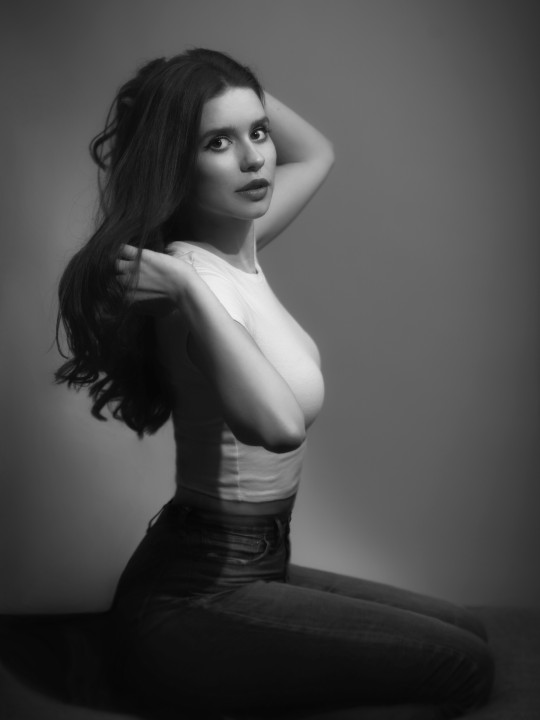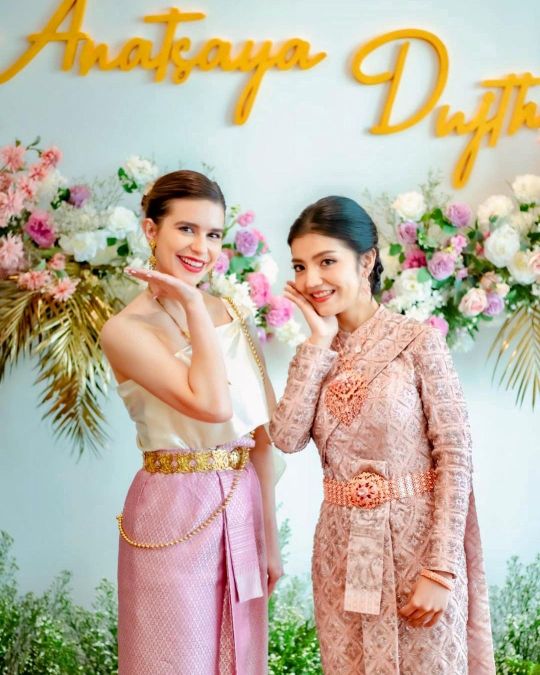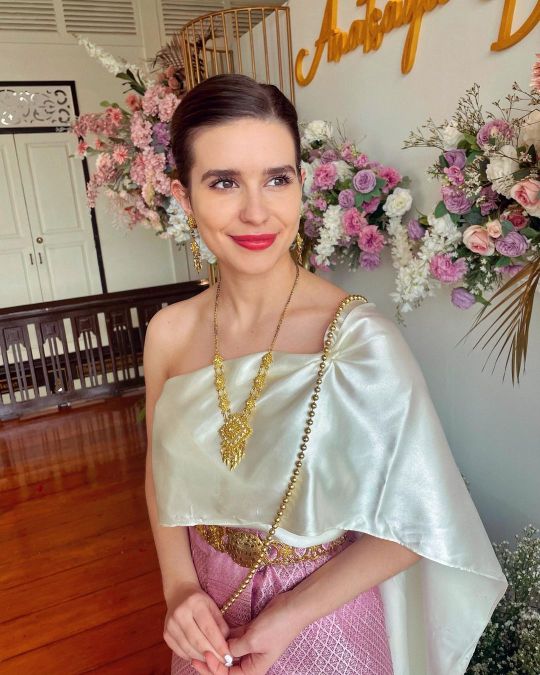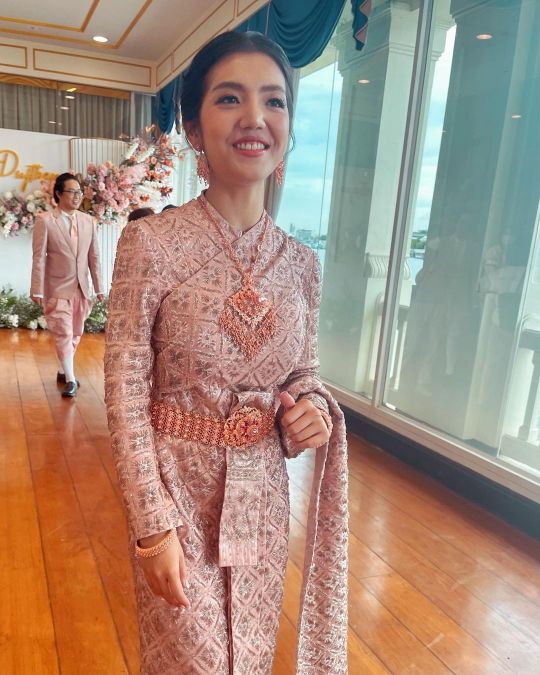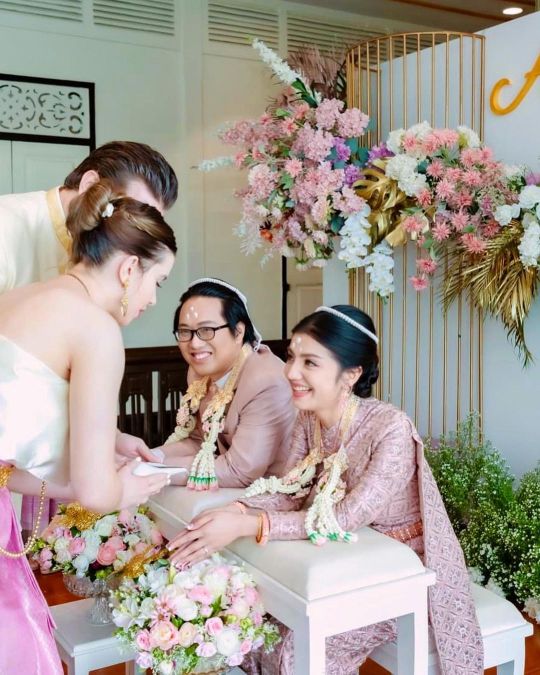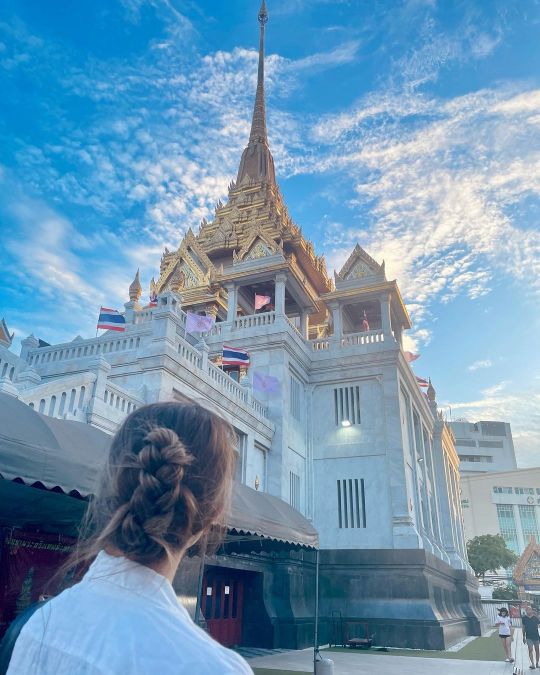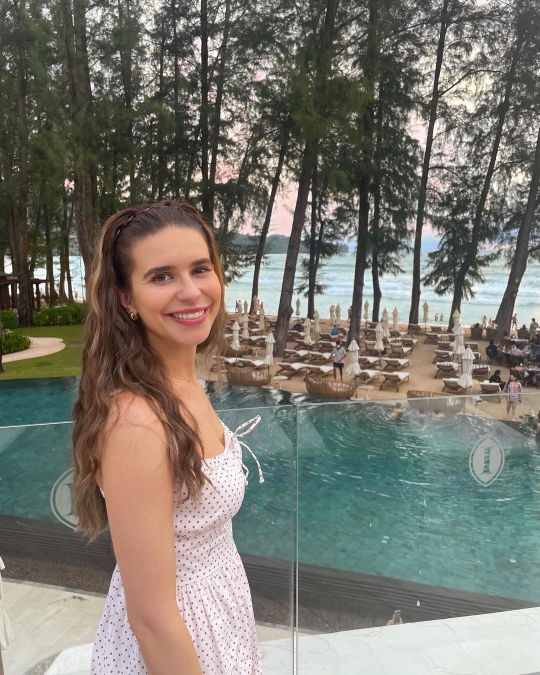#philippa Coulthard
Text
“HOWARDS END” (2017) Review
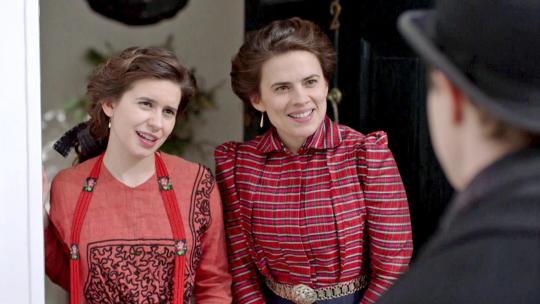
"HOWARDS END" (2017) Review
If there is one production company associated with the works of E.M. Forster it is Merchant-Ivory, the creation of producer Ishmail Merchant and director-producer James Ivory. I find this odd, considering that Merchant-Ivory have only adapted three of Forster's novels. One of those novels is "Howards End", published in 1910. There have been at least three on-screen adaptations of the latter - a 1970 BBC movie, Merchant-Ivory's 1992 Oscar winning film and the ITV's 2017 miniseries. This particular article happens to be about the latter.
"HOWARDS END" is basically an exploration of social and class divisions in Edwardian Great Britain, through the viewpoints of three families - the intellectual and idealistic Schlegels, the Wilcoxes; who are wealthy capitalists; and the working-class Basts. Sisters Margaret and Helen Schlegel become acquainted with the Wilcox family during a trip to Germany. When Helen, the younger Schlegel sister, visits the Wilcoxes at their country house, Howards End. She becomes attracted to the younger Wilcox son, Paul, and they become engaged in haste. However, the pair soon regret their decision and quickly break off their engagement. but soon regret their decision, breaking off the engagement by mutual consent. Months later, the two sisters and their younger brother Theobald "Tibby" Schlegel attend a musical concert, when Helen accidentally takes an umbrella that belongs to the impoverished clerk Leonard Bast. He appears at the Schlegels' home to retrieve it but leaves in a hurried after becoming embarrassed by his umbrella's shabby quality and appearance. Several months more pass before Leonard's common-law wife, Jacky, appear at their home, demanding his whereabouts. Apparently, Leonard had embarked upon a long walk into the countryside upon leaving work. He returns to the Schlegels' home to explain his disappearance and quickly forms a friendship with the two sisters.
Meanwhile, the Schlegels renew their acquaintance with the Wilcoxes when the latter move into a London townhouse, across the street from the latter, for oldest son Charles' wedding to a young woman named Dolly. With Helen visiting relatives in Germany, Margaret begins a friendship with Mrs. Ruth Wilcox. But their friendship is cut short by the latter's death. Sometime after Ruth Wilcox's funeral, the Schlegels become acquainted with the Wilcoxes again when Margaret and Helen encounter the recently widowed Henry Wilcox around the same time their friendship with Leonard Bast begins. Between Henry's bad employment advice regarding Leonard, Helen's developing dislike of Henry, and Margaret's growing attraction toward the businessman; a clash between social and political classes spiral toward a startling conclusion.
I had first learned about this third adaptation of Forster's novel through a blog that centered around period movie and television productions. The writer, a major fan of the 1992 adaptation, had quickly dismissed this production (without having seen it, I may add) as not worth viewing. Considering my past experience viewing the 2007 television adaptation of "A Room with a View", I had felt inclined to follow the blogger's advice. But in the end, I had decided it would have been fairer to give "HOWARDS END" a chance. I am more than glad I did.
Mind you, I had a few quibbles about "HOWARDS END". If I must be honest, I can only think of three quibbles right now. The miniseries featured a scene I believe should have involved a bit more of an emotional impact. This scene featured Margaret Schlegel's response to Henry Wilcox's decision to end their engagement, following the revelation of his past affair with Jacky Bast. I can see Margaret keeping her cool, while facing Henry's emotional decision. But even in the privacy of her room, Margaret had remained calm, almost cold, as he contemplated her next move. I do wish that director Hettie MacDonald and screenwriter Kenneth Lonergan had allowed a small peek into any emotional turmoil on Margaret's part. I also found her reaction to seeing Henry again, at his daughter Evie's wedding, a bit odd. She seemed a bit too . . . controlled, even after Helen had led her and Leonard away. Speaking of Jacky, I consider my third quibble to be a major narrative problem. And it is a problem shared by Forster's original novel and the 1992 film. What in the hell happened to Jacky Bast? Neither this miniseries, the novel or the movie bothered to reveal or hint Jacky Bast's fate, following that final event at the Howards End estate. It seemed clear that once poor Jacky had served her purpose in exposing Henry's past, Foster did not give her another thought. Screenwriter Ruth Prawer Jhabvala had decided to be faithful to the novel in her screenplay for the 1992 movie. I had hoped Lonergan would resolve this issue in miniseries' screenplay. Unfortunately, he had merely repeated Forster's mistake.
Despite my issues, I really enjoyed "HOWARDS END". Much more than I had fully expected. Thanks to Hettie MacDonald's direction and Kenneth Lonergan's screenplay, I thought the miniseries did an excellent job in exploring the different social classes and political beliefs that permeated the story. I do not know if I would label the Wilcoxes as part of "the upper classes". Before World War II, only members of the aristocracy and landed gentry were regarded as the upper classes. The Wilcoxes are obviously rich capitalists, whose fortune had originated in one or many of the British colonies overseas. Before the war, they would be regarded as "trade", regardless of their wealth. I sometimes found myself wondering if Henry Wilcox's attempt to find a family estate of his own was indicative of his desire for the family to be regarded a lot higher than mere rich capitalists. After all, his first wife Ruth, whose family had owned Howard End for generation, may have come from the landed gentry. Henry and his children did not seem interested in living at Howards End. Yet, they seemed determined that Ruth's desire to pass the estate to Margaret would be prevented. I find it strange that none of this had ever occurred to me, while watching Merchant-Ivory's film or reading Forster's novel.
Then again, I should not have been surprised. Watching this miniseries had made me aware of a lot of issues and emotions in the story - more so than the film and novel ever did. In at least two scenes, the miniseries seemed to have further exposed Henry's bullying and hypocritical nature. This was apparent in one scene in which he dismissed some of Helen's progressive views in a friendly, yet arrogant manner during her stay at Howards End in the first episode. Another scene featured Henry's refusal to consider that his advice regarding Leonard's employment had left the latter jobless. I found his reaction to Leonard's situation so arrogant and insensitive that I had to fight the urge to punch my fist through the television screen. I also noticed in some of the scenes featuring Ruth Wilcox that despite her gentle and soft-spoken nature, she seemed to exercise a strong grip on her family - including Henry. One very interesting scene in this miniseries featured Margaret and Helen's discussion about the Wilcoxes and the latter's negative comments on the wealthy family. Also, this version of Leonard Bast seemed not only more timid, but also more insecure.
What I found surprising about this adaptation is the less-than-ideal portrayal of the Schlegel sisters. Mind you, MacDonald and Lonergan's portrayal of "Tibby" Schlegel did not hesitate to expose the character's sharp wit, arrogance and self-absorbed nature. One brutal moment featured Tibby refusing to speak to Leonard, when the latter appeared at the Schlegels' current home to learn Helen's whereabouts. And as shown in the 1992 adaptation, the pair also exposed Helen's over-emotional reaction to the Wilcoxes and Margaret's relationship with Henry, along with Margaret's willingness to throw the Basts under the bus, when their very presence (I should say Jacky Bast's presence) proved to be a major inconvenience to her engagement. But I was surprised by MacDonald and Lonergan's willingness to expose Margaret's shallow fascination of Henry Wilcox's "manly" traits and his wealth - something I suspect that may have led her to consider him as a potential husband. Another moment that caught me by surprise was Helen's disregard for Jacky Bast and the dismissive comments she had made about the latter. She only seemed interested in Leonard, who somewhat shared her family's intellectual pursuits.
Just about every performance featured in "HOWARDS END" struck me as first-rate. I could not think of one misstep within the cast - at least as performances were concerned. Mind you, I thought casting Matthew MacFadyen and Julia Ormond as Henry and Ruth Wilcox was a bit problematic. Especially since Ormond is nearly a decade older than MacFadyen. But I cannot deny that both gave excellent performances. Ormond did a great job in portraying a soft-spoken and graceful woman who was not only in a state of physical decline, but also managed to exact a strong will over her family. I was really surprised by MacFadyen's portrayal of Henry Wilcox, but I thought he gave a fabulous performance as the domineering, yet short-sighted businessman who reeked of toxic masculinity. Although his appearance in the miniseries was brief, I thought Jonah Hauer-King gave a solid portrayal of the younger Wilcox son, Paul. Bessie Carter and Yolanda Kettle struck me as equally solid as Henry's only daughter, Evie Wilcox and Charles' bride and later wife, Dolly Wilcox. But I was very impressed by Joe Bannister's portrayal of elder son Charles Wilcox. I thought he did an excellent job of conveying the character's conservative and brutish nature without any taint of cartoonish acting.
Alex Lawther gave an excellent performance as the eccentric and self-absorbed Tibby Schlegel. Why do people assume that performers known for comedy would have such difficulty in dealing with dramatic roles? I never understood this attitude, considering comedy is known for being more difficult to perform. Tracy Ullman, who portrayed the Schlegels' Aunt Juley Mund had no difficulty in seamlessly utilizing both comedy and drama in her first-rate portrayal of the meddling, conventional, yet well-meaning woman. I thought Rosalind Eleazar gave an exceptional performance as Jacky Bast, a former prostitute who also happened to be Leonard's ill-fated woman. Eleazar managed to infuse a sense of desperation in Jacky, who struggled unsuccessfully to keep her and Leonard from falling into some kind of social and economic abyss.
It seemed good to see Hayley Atwell in a properly dramatic role, after spending years appearing in the Marvel Cinematic Universe films and television shows. I thought she gave a first-rate portrayal as Margaret Schlegel, the warm and strong-will sibling of the Schlegel family. Atwell did an excellent job of conveying Margaret's most admirable traits and at the same time, exposing the character's more questionable ones with great subtlety. I especially admire her performance in one scene in which she tried to force Henry to face his hypocritical refusal to forgive Helen's state as an unmarried mother, in comparison to his adulterous past with Jacky Bast. Joseph Quinn recently made a name for himself as an eccentric high school student during Season Four of the Netflix series, "STRANGER THINGS". But I was more than impressed by his portrayal of the intellectual wannabe, Leonard Bast, who found himself befriending the Schlegel sisters. Quinn did a great job in not only portraying Leonard's intelligence and longing for intellectual pursuits, but also his growing insecurities as he found his life being drawn even closer to the Schlegels and the Wilcoxes. But if I had to vote for the best performance in "HOWARDS END", I would select Australian actress, Philippa Coulthard. I thought she gave a superb performance as the younger Schlegel sister, Helen. I really admired how Coulthard conveyed Helen's emotional journey throughout the story; especially in scenes that featured Helen's scathing commentary on the Wilcox family, her growing hostility toward Margaret's romance with Henry Wilcox, her complicated relationship with Leonard and especially her anger at the Basts' destitute situation in the wake of Henry's poor employment advice.
One aspect of "HOWARDS END" that really took me by surprise was the excellent qualities of the miniseries' production values. Mind you, Sheena Napier's costume designs never attracted the same kind of acclaim that those from the 1992 movie. If I must be honest, I actually enjoyed her designs (as shown below):
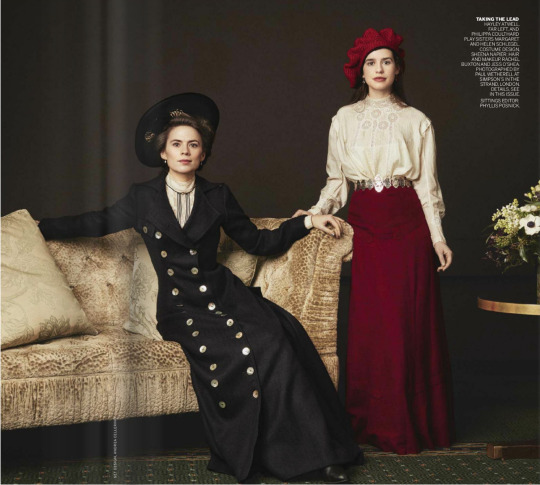
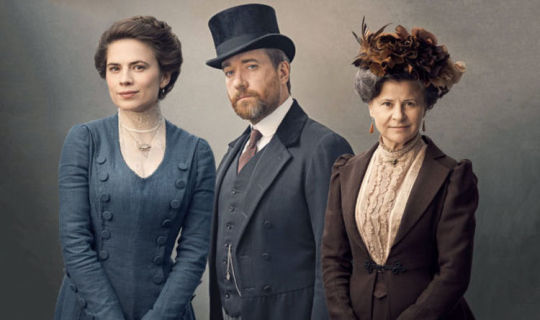
I found them quite colorful and beautiful without being too stylized or glamourous. Considering the characters viewers are dealing with, that seemed sufficient to me. I also enjoyed Wojciech Szepel's beautiful photography, especially in locations in London, Dorset and Buckinghamshire. But what really blew my mind were Luke Hull's production designs. I thought he did a superb job in re-creating Edwardian England, especially those scenes shot and set in London. While watching the miniseries, I felt as if someone had dropped me squarely back into London circa 1905-1906.
"HOWARDS END" managed to score a good number of award nominations, but I noticed that most of them came from lesser award organizations. It did win the BAFTA Award for Best Miniseries, but that was about it. No other nominations from BAFTA, no nominations from the Golden Globes or the Emmys. And all I can say is . . . "what the hell?" "HOWARDS END" proved to be one of the best television limited series I have seen in years. It became a critical darling from the media. Yet, it did not earn or win any major nominations, aside from the BAFTA Best Miniseries award? Were people so busy comparing it to the 1992 Merchant-Ivory film that they were blinded by its own merits? Hell, I believe it is just as good as the 90s film in its own way. I thought Hettie MacDonald, screenwriter Kenneth Lonergan had created an exceptionally first-rate miniseries that featured superb performances from a cast led by Hayley Atwell, Matthew MacFadyen and Philippa Coulthard. Perhaps one day, many other than the media, will appreciate it on its own merits.
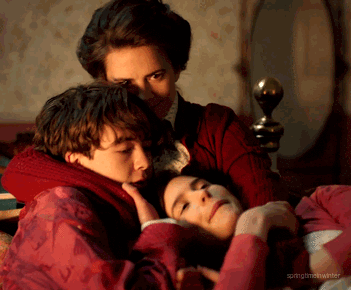
#e.m. forster#howards end#howards end 2017#hettie macdonald#kenneth lonergan#schlegel family#wilcox family#bast family#hayley atwell#matthew macfadyen#philippa coulthard#joseph quinn#tracey ullman#rosalind eleazar#alex lawther#joe bannister#bessie carter#jonah hauer king#julia ormond#bafta award#yolanda kettle#bbc costume drama#costume drama#period piece#period drama
16 notes
·
View notes
Text
Howards End: Helen Schlegel [ENFP 2w1]
MBTI Type: ENFP
Helen is a romantic idealist at heart, who loves to fiercely debate her ideas at the breakfast table; she says as resentful as she was of Henry turning her ideas inside out and proving them all wrong, she also rather enjoyed it! In her own way, she is flighty and inconsistent, changing her mind about people and where she wants to be on a whim (falling in love with someone…

View On WordPress
2 notes
·
View notes
Photo


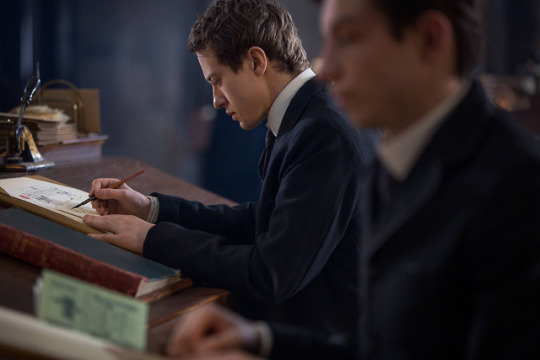

Hi res stills from BBC Starz Howards End, original source Far Far Away Site
2 notes
·
View notes
Text
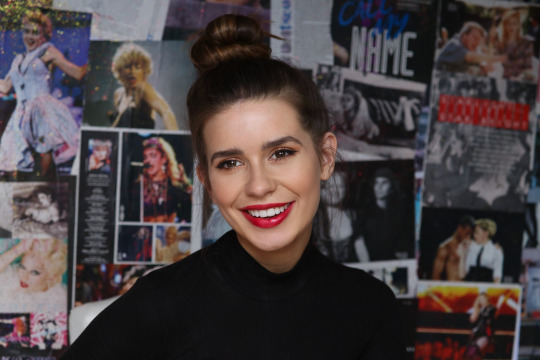
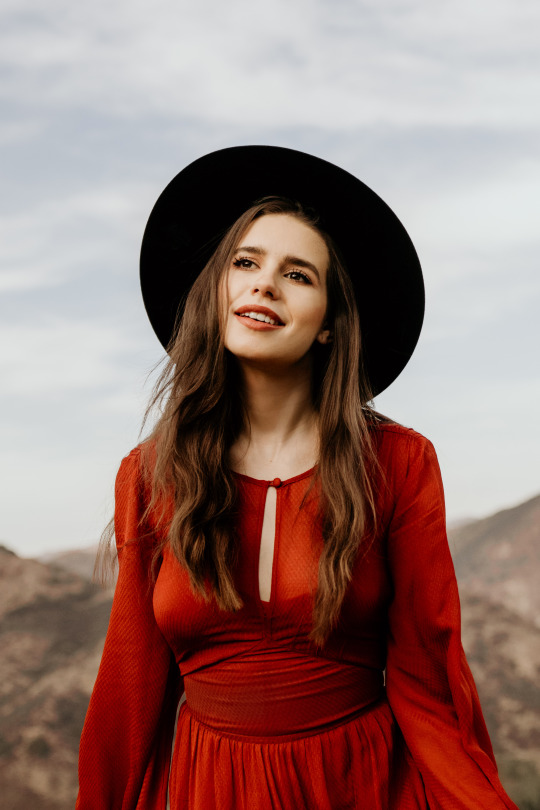
8 notes
·
View notes
Text
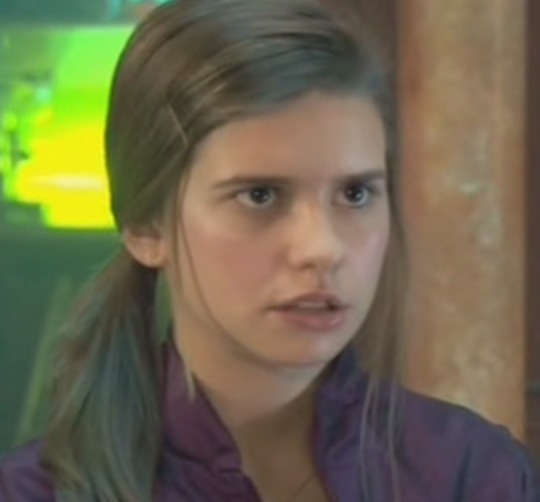

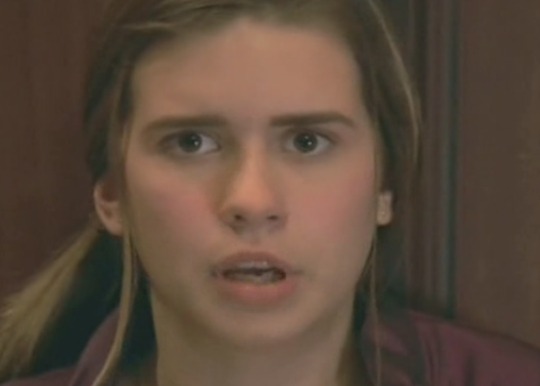
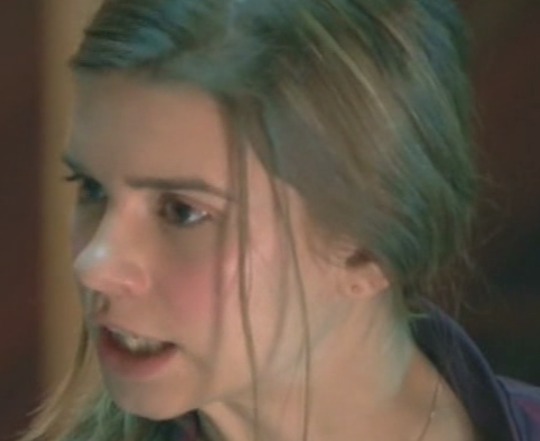
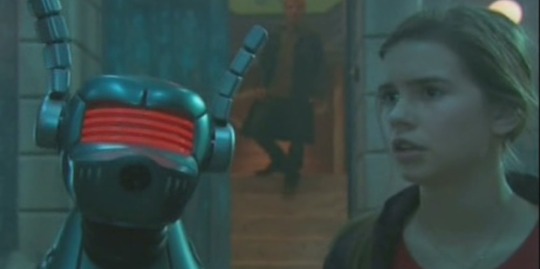
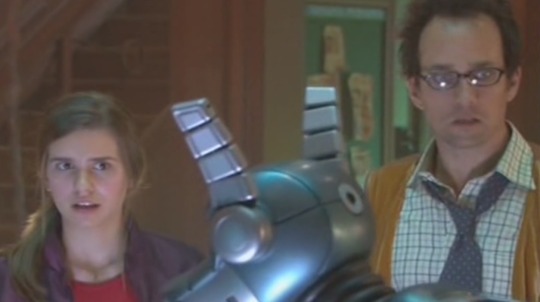

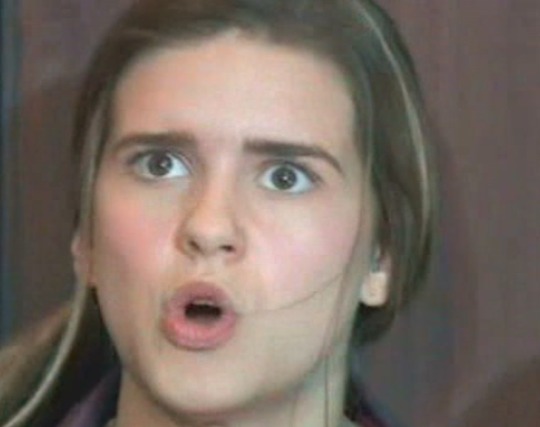
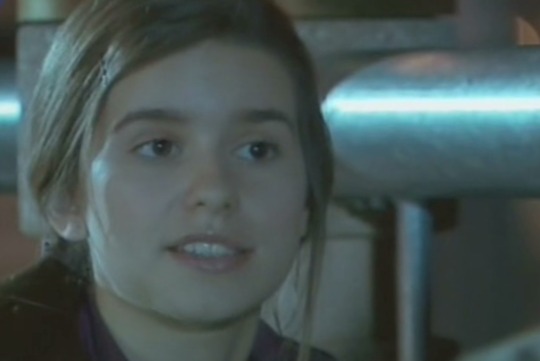
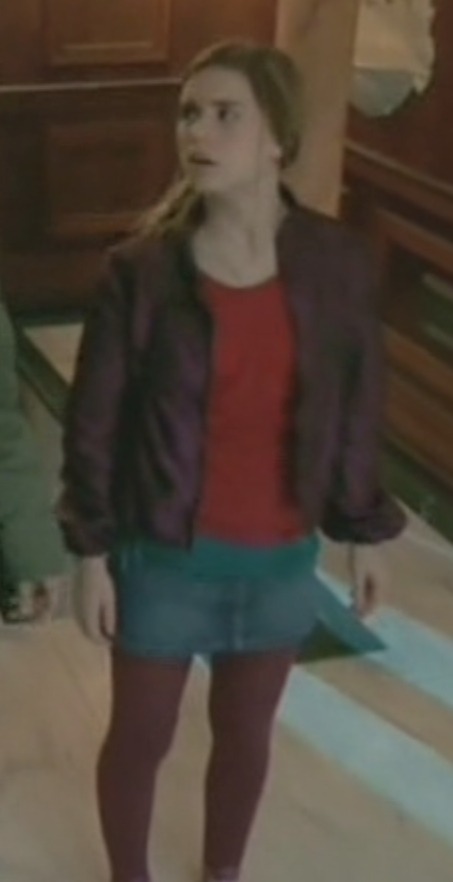
Episode 1 "Regeneration". A professor in a big house receives a parcel from two vicar-ish looking people from "the department". Stark Reality, Starky, a teen rebel on a street corner hacks a flying advertising hoarding. A young woman called Jorjie interrupts him; she got his name by hacking "your criminal activity file" suggesting she has similar tech skills.
They meet The Professor, who is definitely not The Doctor, and he opens a portal across space and time that brings his lost wife and children to him, except Starky trips on a power cable and they are lost... Next time the link is established it instead brings K9 off of Doctor Who along with some baddies who need to be fought off. K9 inadvertently explodes, but regenerates from his Plot Device Unit thus bonding with the kids.
In this ep Jorjie wears purple tights under her denim miniskirt most of the episode and blue ones at the end. We'll be keeping an eye on this, her wardrobe seems quite narrow and almost every week it's a pair of opaques with that skirt. The purple glitter converse trainers also put in regular appearances, but who can blame her.
0 notes
Note
Hey!!! Wsp?
Do you have any fc that could be daughter/sister of Olivia Cooke?
Love you <3
Hello there! hope you're well! of course <3
Philippa Coulthard (20-29)
Sadie Soverall (15-21)
Bailee Madison (16-23)
Daisy Edgar-Jones (17-25)
Ella Purnell (18-26)
Katie Douglas (17-24)
(cib)
6 notes
·
View notes
Note
any show/movie recommendations? 🥺
tbh i’m probably pretty low on the list of good people to ask lmao but!-
for something funny you should watch at least the first ever episode and the tom baker robot arc of classic doctor who. tom baker will always be the incarnation i think of first
the legally blonde musical is really good and the moral implications are fixed a little bit so it’s a really funny body-positive feminist banger
i just finished moon knight also and i can report the angst is so good. i know it’s a marvel project but it doesn’t feel like one. only connection is that he has a supersuit but that’s not the Point and it’s just oscar isaac being a fucking incredible actor for eight episodes and (forgive me if i’m wrong) a good jumping block for studying dissociative identity disorder
period drama rec: you should watch bbc’s howard’s end because literally everyone is gorgeous but philippa coulthard as helen. audhejsjshg. and hayley atwell plays her sister. also joseph quinn looks like mark zuckerberg in it but i didn’t know who he was at the time lmao
1 note
·
View note
Text
😓
Is there an assumption that my characters are abandoned because I don't constantly make dozens of gorgeous graphics, etc for them?
Because they're not.
Did I subconsciously realise that I wouldn't be the only one to see the similarity between Hayley Atwell and Philippa Coulthard? Probably.
Does still hurt a little? Yes. More than a little.
Because it reminds me that I have a hard time working outside a fandom. And why I have a hard time getting along with other people I barely know.
Contemplating a Valery-esque step and backing away in the next few months. Whether that actually works out or not, who knows.
I certainly don't.
Nor are anyone who cares really going to see this. 🤷🏽♀️🤷🏽♀️
1 note
·
View note
Text

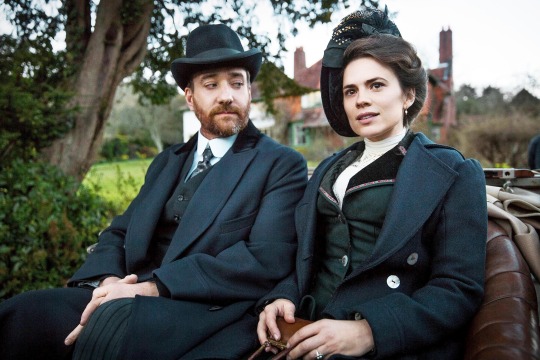
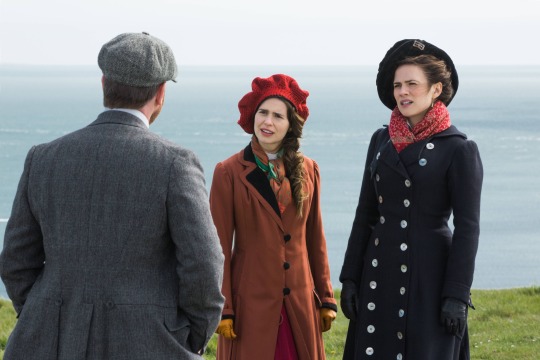


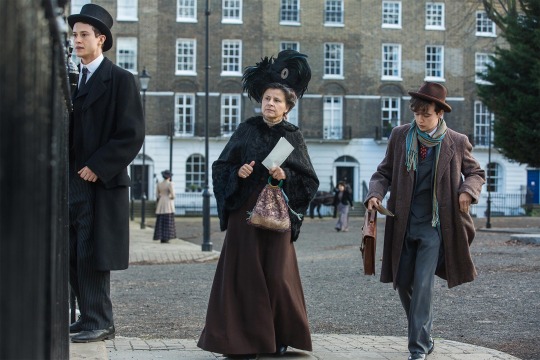
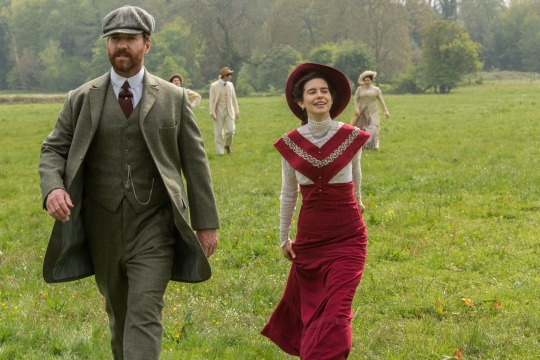
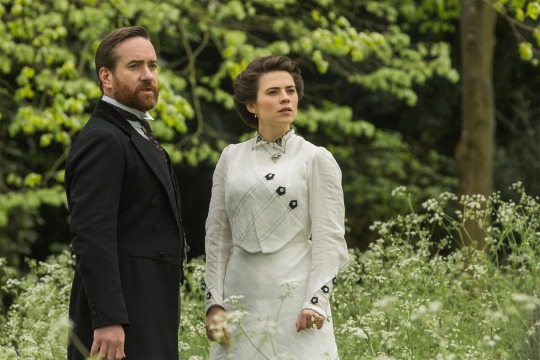
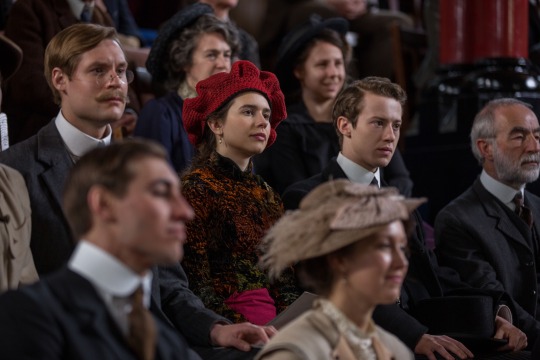

Howards End (2017) TV Mini Series, clothing in the late 1900s/early 1910s. Costume design by Sheena Napier. Historical clothing sophistication
🌟🌟🌟
Analyse: In fact, I don't think highly of the costumes of this TV Series, first of all, because the costume designer is Sheena Napier. Many of her works are in line with history, and my favorite is parade's end, who is her costume designer. I am deeply impressed by many beautiful hobble skirs in this TV series! So I'm looking forward to the costumes of Howard end! But the final effect disappointed me! First of all, the Schlegel sisters Margaret and Helen, in order to highlight that they are intellectuals and even have a bohemian lifestyle, so they dress casually most of the time! Especially when they go out, a simple coat and a fancy but not warm scarf are 80% of their appearance in the play! Sometimes I even go out with only a shawl... It's really perfunctory! In addition, they wear strange Berets most of the time, and in the play, except that Schlegel's aunts Juley and Mrs. Wilcox are wearing the right hats, others' hats are generally too small, but this is completely inconsistent with the fashion at that time! Besides that terrible Beret! To sum up, these are the points that make me very disappointed, but the costumes of the play are not without advantages! For example, there are many exquisite shirts in the indoor modeling of Margaret and Helen, and these modeling are inspired by the clothes of feminists from 1890s to 1910s, which is also very consistent with Margaret and Helen's thoughts on feminism. In addition, the costumes of the play are bright in color but not dazzling. They match well with the bright light in the play and are also very good.
#howards end#20th century#hayley atwell#matthew macfadyen#philippa Coulthard#alex lawther#juila ormond#1900s#1900s fashion#1910s#1910s fashion#costumes#costume design#costume designer#costume drama#history of fashion#historical costume
63 notes
·
View notes
Photo
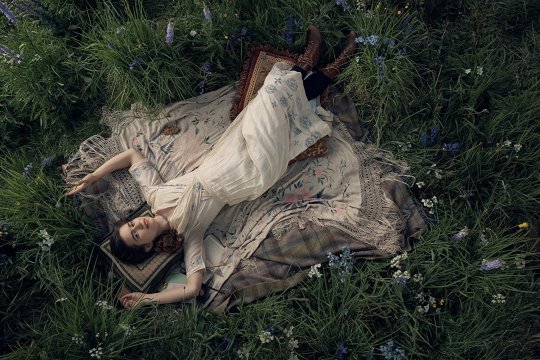
Philippa Coulthard in Howards End (2017)
16 notes
·
View notes
Photo

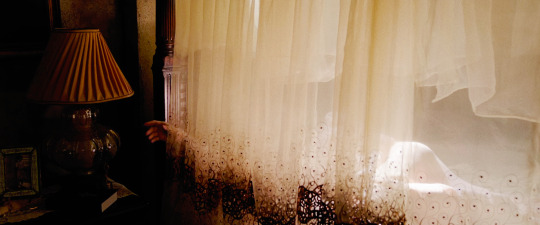
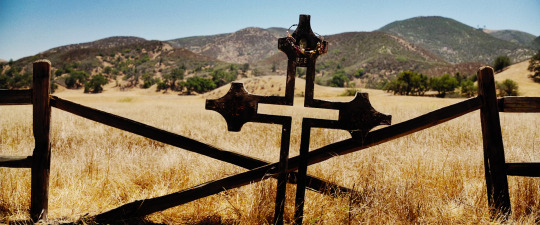

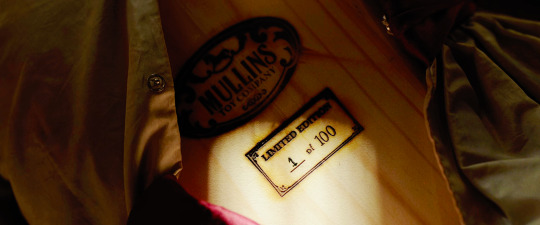
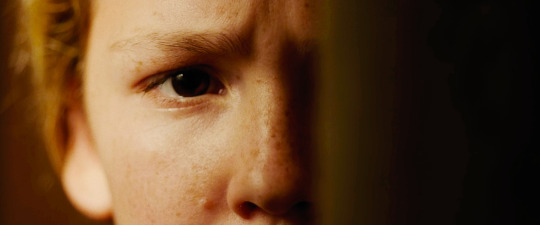

#annabelle creation#david f. sandberg#annabellecreationedit#filmedit#james wan cinematic universe#or the#jwcu#if you will#talitha eliana bateman#miranda otto#lulu wilson#stephanie sigman#grace fulton#philippa coulthard#tayler buck#lou lou safran#💁
39 notes
·
View notes
Text
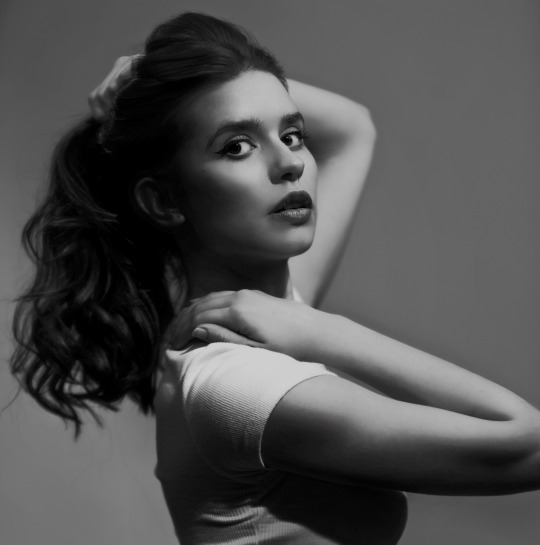
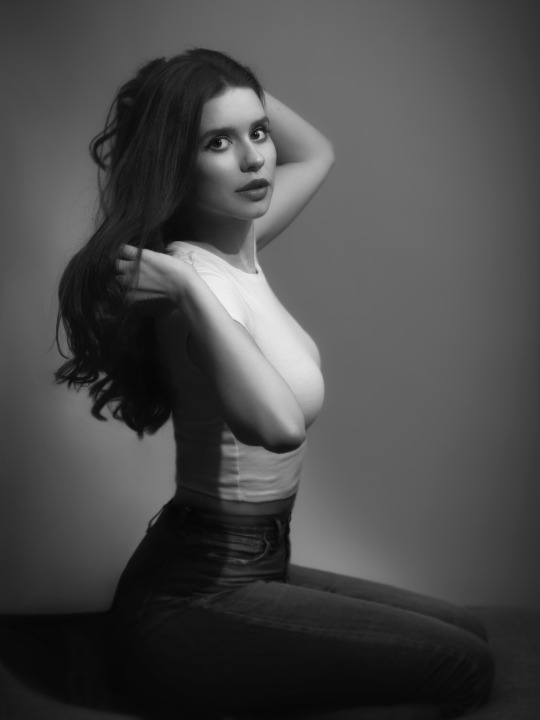
1 note
·
View note
